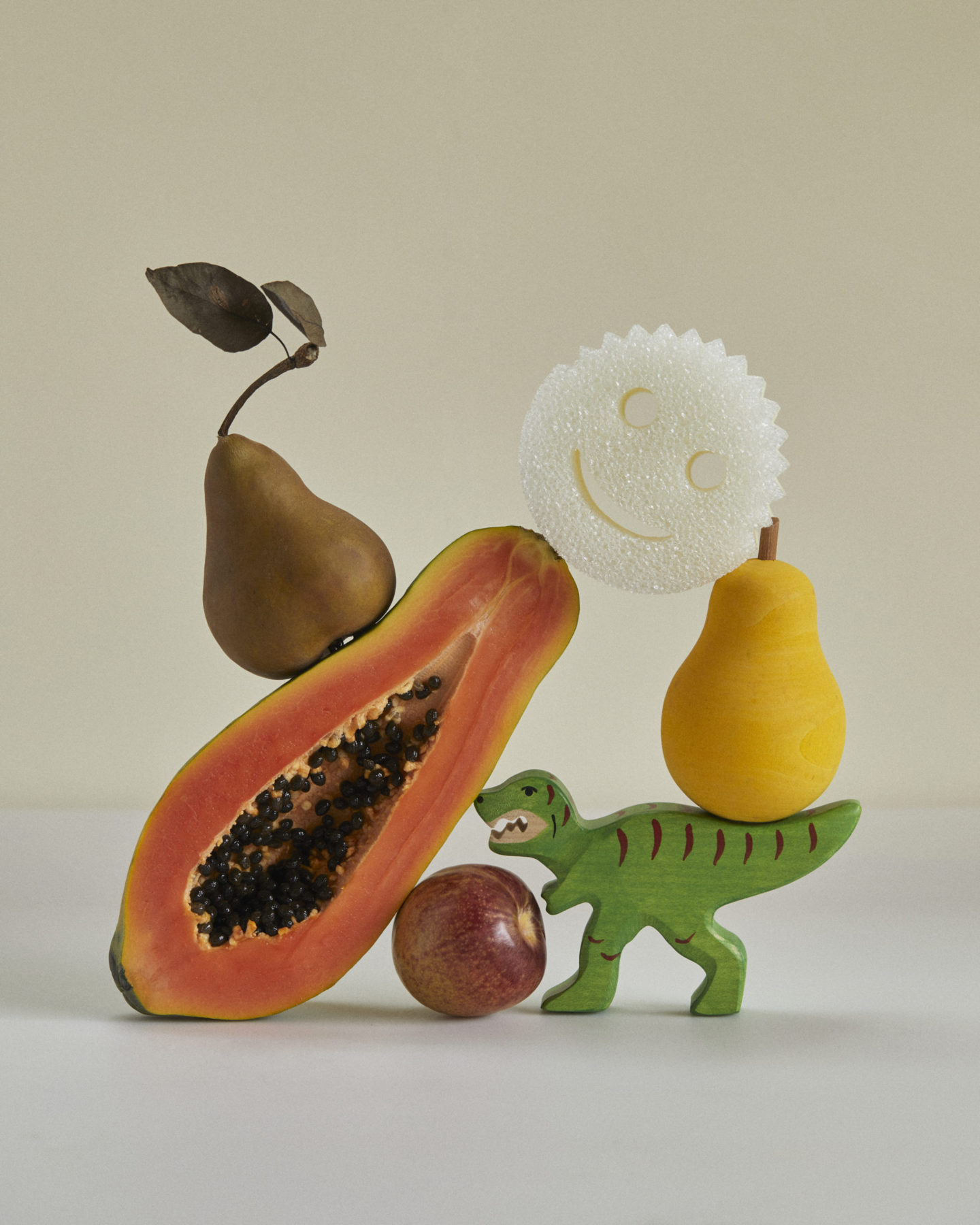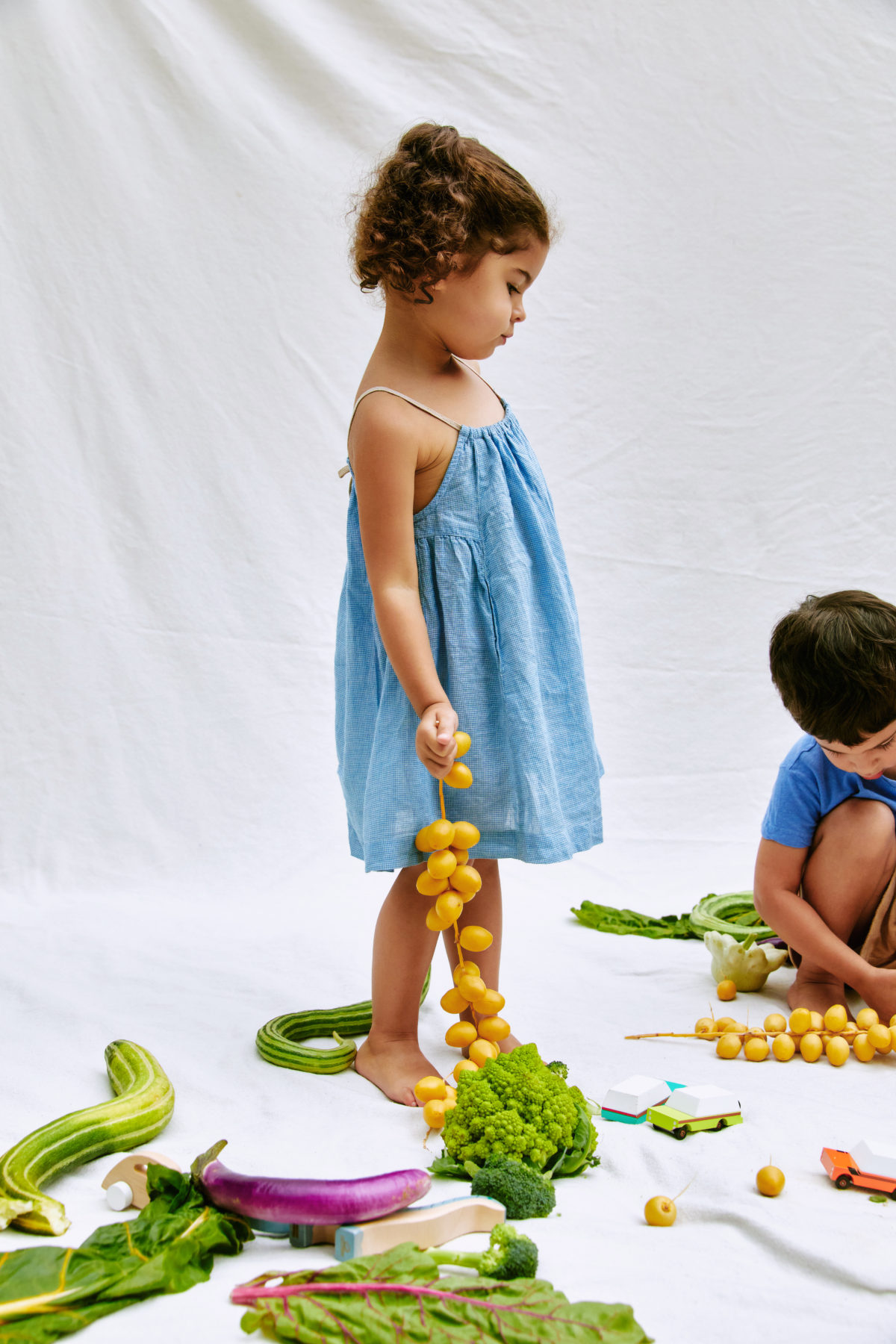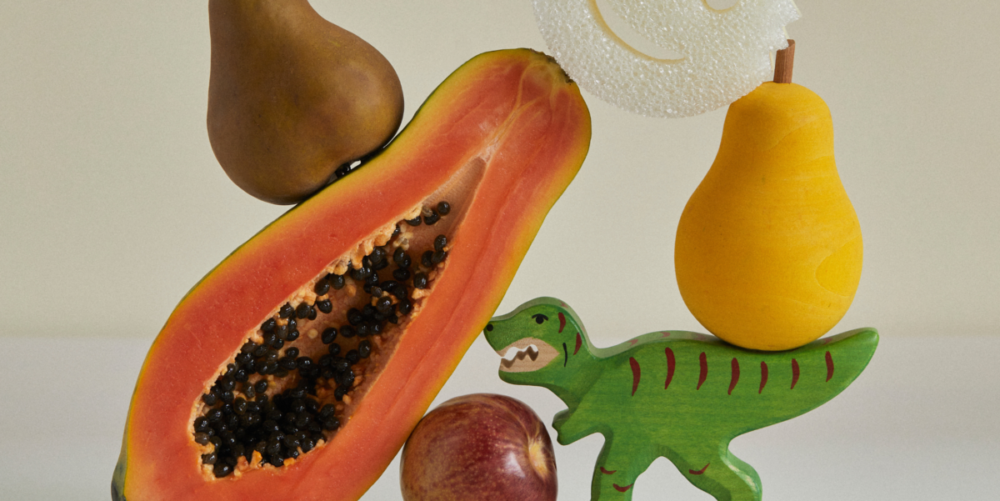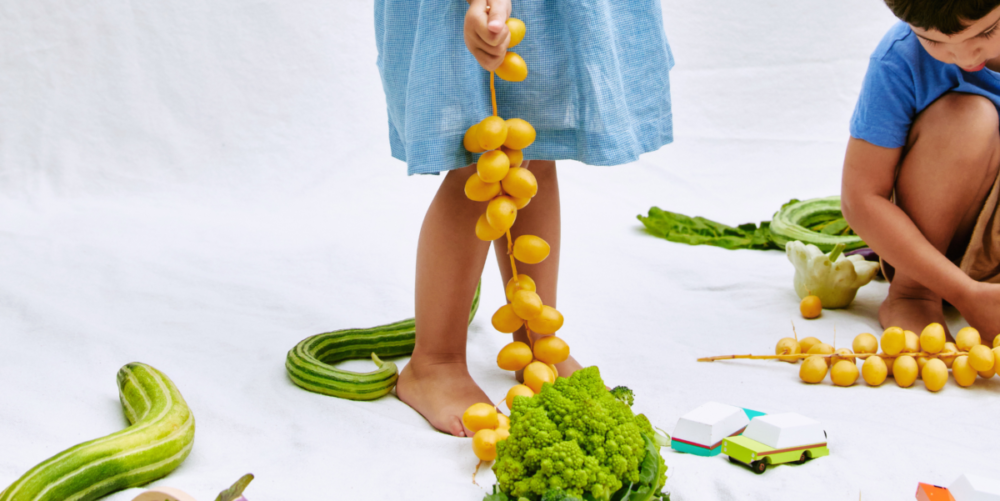
Tell us a little about yourself and Peach Grove.
I am Alex, a mom of two girls, 9 months and 3.5 years old and a certified holistic nutrition consultant. For 15 years my career was in fast fashion, focusing on product development and creative direction. When I had my older daughter, Madeleine, I decided that the fashion industry I was a part of no longer filled my bucket, it truly burned me out. So, I took a chance and decided to pursue my life long interest in food. I didn’t know what that meant at the time, I am no chef, just a decent home cook. It was feeding my baby that led me to the path I am on today.
I found myself lost in hours of research. What should I be feeding her, how much, what nutrients does
she need, what does weaning mean, etc. There was just so much content out there, I found it
extremely overwhelming as I am sure most of us do. That’s when I decided there needs to be a
resource that depicts information in a beautiful way (my fashion brain) that is concise and easy
to digest, no pun intended. Enter Peach Grove, a space for families to discover & learn, and get
tips and tricks from the very first bite. I offer one-on-one services and coming soon I will be
offering downloadable guides. I am just getting started and can’t wait for what’s next!
What are some of your favorite and recommended first foods?
You want to start with easy to digest foods. This is just a guide.
- Ripe avocado
- Steamed, roasted, or boiled veggies such as: butternut squash, zucchini, broccoli, green
beans, peas, sweet potato, carrots - Ripe banana (hold off if baby is showing signs of constipation)
- Soft ripe fruits & steamed fruits such as: pears, apples, stone fruits, blueberries
(although, I limit fruits in the beginning because naturally babies are drawn to sweet
flavors because breastmilk and formula are sweet, so I prefer focusing less on fruits) - Organic chicken and turkey
- Organic grass-fed pasture raised meat such as beef and lamb
- Bone broth
- Organic chicken liver
- Sauerkraut brine
- Organic spirulina
- Coconut products such as: coconut oil, coconut yogurt, coconut cream
- Hemp seeds
- Soaked chia seeds
- Ground flax seeds
- A variety of healthy oils such as: avocado oil, olive oil, coconut oil
- Can begin some top allergens once baby has had a good amount of low allergen foods, I
suggest starting with nut butters, egg yolk, ghee - Grass-fed collagen
What are some tips for helping babes develop healthy and mindful relationship with
food?
Start with a variety of whole real foods and model eating with them. The best advice I can give
is monkey see monkey do. Keeping a variety of different foods, flavors, and textures in their diet
will help them develop a more varied palate and be less cautious when that tends to develop
around the time of toddlerhood. I suggest continuing to expose often and remember that’s your
role, to provide and it’s theirs to decide to eat it or NOT. We want our little ones to listen to their
hunger and fullness cues, so they can learn how to regulate their appetite. Something I was not
taught as a kid, I was always told one more bite and you can have dessert. Food pressure is
your surest bet that your kid will not have body awareness, let them tell you when they are
done, even if they took two bites. There is always the next meal. In our home, I serve a small
serving of a dessert food with a “growing food”, there is no separation of state when it comes to
the meal. That way the “growing food” does not equate to a reward of a dessert. Kind of nuts I
know, but it works for very determined toddlers. And just have fun with food, it’s ok to be silly
and messy. I am a big fan of using play when eating. My toddler loves to pretend she is a
dinosaur and her broccoli is a tree and she chomps it.

What is your favorite approach to starting solids?
My approach is to follow the lead of the parent and what they are comfortable with. I find that if
the person who is feeding the baby feels confident, then the baby will have a more calm
experience overall. The method I love is baby led feeding. This means that the baby is in
charge, this can be done with finger foods and purees. The baby is in control and that’s the best
way for them to learn how to actually eat, rather than a spoon being shoved into their mouth.
Do you have a grocery guide?
Sort of…I say when you are shopping in the grocery store you want to spend most of your time
on the perimeter, that’s where all the real whole foods are. The good stuff! Then work your way
in the aisles and focus on shopping for recipe builders, like grains and condiments. I tell clients
to keep it simple and focus on what is in season and what you tend to eat most, that way you
use more and waste less. The way to stay organized when shopping is to focus on…
- Produce, those should be the building blocks of your meal, I like to make the veggies and fruits
be my inspo - Meats/fish/poultry
- Grains, dried legumes
- Flavors, like herbs or oils
- Canned goods, like strained tomatoes and tinned fish (fan fave)
- Dairy if you consume (I prefer raw cow dairy and sheep/goats milk)
- Superfoods
- *Packaged snacks (for us that looks like seaweed, dried fruits, nuts, Bjorn Corn, monkfruit
chocolate chips, sourdough crackers and brown rice cakes) - Frozen foods for not in season produce
Favorite recipes for purees? Favorite recipes for toddlers/kids?
My favorite recipe for purees is more of a formula than a recipe. I find that most puree recipes
lack FAT, such a crucial nutrient to help with absorbing fat-soluble vitamins that are found in
many foods we offer. Sure you can simply puree a vegetable or fruit on its own, I think that is
wonderful and an easy way to introduce new foods, but I suggest following this combo for a
winning puree once your baby has been introduced to more simple flavors on their own:
REAL FOOD + FLAVOR + FAT + SUPPER FOOD = PERFECT PUREE
What does that look like? Here are some examples…
Roasted cauliflower+oregano+avocado oil+dulse flakes
Steamed carrot+knob of ginger+ghee+soaked chia seeds
**My other hot tip is to use something other than water to thin the puree for added nutrients. I
love using homemade bone broth or breast milk/formula.
For toddlers/kids, I am a HUGE believer in “they eat what I eat” to a degree. Am I asking my
toddler to eat an arugula salad with shaved fennel, meh. But from the time a baby starts solids I
make my menu based on the family, I do not make a “kids menu”. The food itself is modified to
meet them where they are developmentally. So for toddlers and kids I love using recipes that the
whole family can enjoy, including myself! Now don’t get me wrong, I do love a recipe that leans
more “kid”, but if I was asked to eat it, I wouldn’t be like oy gag, this tastes like kid food.
Recipes on heavy rotation in my house are green muffins from Pamela Salzman (really anything
from her, such straight forward simple recipes), any sort of veggie filled fritter or patty from the
Ottolenghi cook books, sheet pan roasted veggies (I use a variety based on what’s in season),
every week we make the anchovy butter roasted chicken from Alison Roman (my 9 month old
goes nuts for this), iron loaded meatballs (I used a Melissa Clark recipe and sub turkey for the
Ancestral blend from Force of Nature), Barefoot Contessa lentil soup has been one of Maddy’s
favorites since she was 11 months old.
Kids LOVE pasta, every week we make homemade pesto using basil and kale (I have adapted a Marcella Hazan recipe) served on Einkorn pasta from Jovial. I also love a quick breakfast since my mornings are now Rush Hour. I love the make ahead baked oatmeal from Heidi Swanson (I shred zucchini in it and add superfoods like hemp and collagen powder).
And one for the cautious eater, super power pops…Really just blend up a nutrient dense smoothie and make it a popsicle.

Do you have any suggestions for plant based babies? What are some tips for getting
iron, protein, etc.?
If a family is strictly plant-based I like to suggest focusing on a variety of protein sources as
much as possible to ensure they consume all the essential amino acids. This doesn’t have to
happen in one meal, but over the course of the day. Why? Because most plant-based sources of protein are incomplete and getting all those essential amino acids is crucial for getting the benefits of protein.
Here are a few plant-based sources of “complete” protein I recommend:
- Hemp seeds (I LOVE rolling slipper fingers foods in hemp seeds)
- Chia seeds (soak them in water, easier on the gut to break down)
- Spirulina 6m+
- Soaked quinoa
- Buckwheat (gluten free despite the name)
- Iron is one of the essential nutrients babies require from 6 months on.
**Fun fact a 6 months old baby requires more daily iron than an adult male! WOAH!
Plant-based babies can consume non-heme iron, although it is less bioavailable (in English this
means, how much your body actually digests/absorbs). I always tell families to stay away from
fortified iron sources, foods like baby cereal are enriched with synthetic nutrients and are heavily
processed. I say the foods that nature provides us are already enriched with a variety of
nutrients, so why rely on the food industry to do it for us, artificially?
So, what plant-based sources of iron should you give your little one?
- Cooked Lentils
- Blackstrap molasses (although this a form of sugar, so I would limit)
- Beans (navy, kidney, black) cooked
- Soaked quinoa



